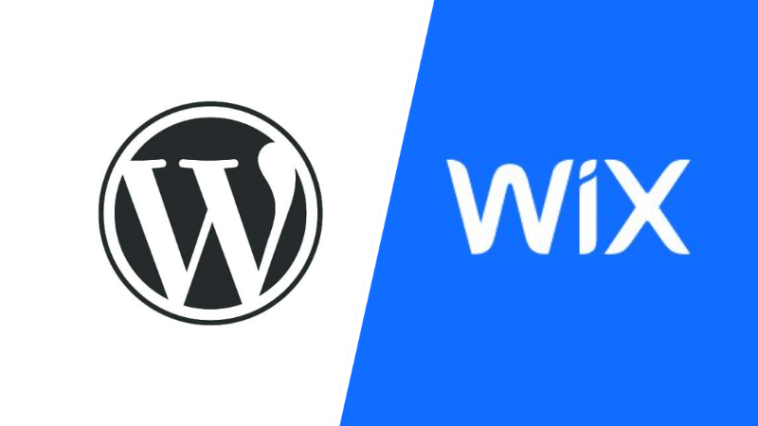Introduction.
When it comes to building a website, WordPress and Wix are two of the most popular platforms. Both have their strengths and weaknesses, making it a bit tricky to choose between the two.
If you’re someone looking to build a website for your business, blog, portfolio, or personal project, this comparison will help you figure out which one is the best fit for you.
I’ve spent some time diving into both options, and by the end of this, you’ll have a solid understanding of what each platform offers, how they stack up against each other, and which one might work best for your needs.
So, why does it even matter? Well, your website is often the first impression people get of your brand or your content.
If you’ve got the wrong platform behind the scenes, it could hold you back from growing your online presence or even leave visitors frustrated.
And if you’re not a tech expert, the ease of use and flexibility of the platform you choose will make a huge difference in how quickly you can get your site up and running.
This guide is going to break down everything you need to know—easy enough for anyone, even if you’ve never built a website before. We’ll look at everything from how simple the platforms are to use, the kind of customization you can do, and even costs. I’ll also cover a few FAQs at the end to help with some of those more specific questions you might have.
What’s in this article?
- A quick rundown of WordPress and Wix: What they are, and who they’re best for.
- A comparison of features like ease of use, design options, costs, and flexibility.
- A look at SEO, performance, and support on both platforms.
- Key differences that could make or break your decision.
At the end, I’ll wrap it up with a few points to help you make a final call. Let’s dive right in!
What is WordPress?
WordPress is an open-source platform that powers over 40% of all websites on the internet. Yep, that’s a huge chunk! It’s been around since 2003 and has become the go-to for people who want full control over their websites.
From bloggers to business owners, WordPress is a flexible platform that can grow with you. It’s not just for blogs anymore either—many big brands like Sony, Time Inc., and even Beyonce’s website run on WordPress.
The best part about WordPress? You get total control over how your website looks and functions. You can pick from thousands of themes and plugins to customize your site.
But here’s the thing: WordPress does require a bit of a learning curve. It’s not as simple as dragging and dropping like some other website builders, but if you’re willing to put in the time to learn, the options are endless.
Pros of WordPress:
- Flexibility and Customization: You can do pretty much anything you want with WordPress. From the design to the functionality, if you can dream it, there’s a plugin for it or you can hire a developer to make it happen.
- Huge community: Since it’s open-source, there’s a huge community of developers and designers who constantly create new plugins and themes to make your experience better.
- SEO-Friendly: With the right plugins and settings, WordPress can help you create an SEO-friendly website that ranks well on Google.
Cons of WordPress:
- Steeper learning curve: It’s not as simple as Wix or other drag-and-drop website builders. It may take time to get used to all the settings and options.
- Maintenance: You’ll need to update your themes and plugins regularly. Some people hire professionals to take care of this, but it can add extra cost if you’re not tech-savvy.
What is Wix?
Wix, on the other hand, is a drag-and-drop website builder that’s been around since 2006. It’s known for being super user-friendly. If you want to create a website without needing any technical skills, Wix is a great option.
You don’t have to worry about hosting, and everything you need is in one place. It’s the perfect solution for small businesses or personal projects where ease of use is a priority.
Wix comes with tons of templates and apps that make it easy to add features like contact forms, galleries, and social media links to your website.
It’s also known for its user-friendly interface, which is a big reason why it’s a favorite among people who don’t have experience with web design.
Pros of Wix:
- Very Easy to Use: You don’t need any coding skills to build a great-looking site. The drag-and-drop editor is simple and intuitive.
- Beautiful Templates: Wix has tons of professionally designed templates to choose from. They look great right out of the box.
- Built-In Hosting: Wix takes care of hosting for you. No need to find a separate hosting provider or manage server settings.
Cons of Wix:
- Less Customization: While Wix is user-friendly, it’s not as flexible as WordPress. You can’t add certain features or do as much customization as you could with WordPress.
- Pricing: The free plan has some limitations (like showing Wix ads on your site), and the premium plans can get pretty pricey depending on the features you need.
WordPress vs Wix: Feature Comparison
1. Ease of Use
- Wix is the winner here for absolute beginners. Its drag-and-drop interface means you don’t need to know any coding or technical stuff to get started. It’s basically all about clicking, dragging, and dropping elements into place.
- WordPress can feel overwhelming at first, especially if you’re new to website building. But once you get the hang of it, you’ll realize that WordPress is more powerful, allowing for more complex features.
2. Design & Templates
- Wix has over 800 designer-made templates that are responsive (they look good on any device). You can start from scratch too, but most users prefer the templates since they look professional right off the bat.
- WordPress also has thousands of themes available, many of which are free. But to really get the most out of it, you may need to purchase premium themes or hire a designer to create something truly unique.
3. Customization and Flexibility
- WordPress wins in this category by a landslide. With plugins and custom code, you can pretty much make your site do anything you want.
- Wix is great for users who want something simple, but if you need advanced functionality, WordPress will give you more options.
4. SEO
- WordPress is known for its SEO capabilities, especially if you use plugins like Yoast SEO. It gives you control over meta tags, image optimization, and site structure.
- Wix has made big improvements in SEO, but it still lags behind WordPress. It offers features like customizable URLs, alt tags for images, and automatic sitemaps, but it’s not as robust as WordPress.
5. Support
- Wix has a very user-friendly support system with a lot of video tutorials, a knowledge base, and live chat support.
- WordPress has a massive community of users who can help you with issues, plus plenty of forums and resources. But for official support, you’ll often need to rely on third-party services.
Costs
- WordPress is free to use, but you’ll need to pay for hosting (which can range from $3 to $25+ per month), a domain name (around $10 per year), and possibly premium themes or plugins.
- Wix has a free plan, but with ads and limited features. Their premium plans start at around $14 per month, and you’ll get more features like a custom domain, more storage, and the removal of ads.
FAQs
Q: Can I switch from Wix to WordPress?
A: Unfortunately, switching from Wix to WordPress isn’t easy because Wix doesn’t allow you to export your site to WordPress. If you want to make the switch, you’ll need to rebuild your website on WordPress from scratch.
Q: Is Wix or WordPress better for SEO?
A: WordPress generally offers better SEO options with plugins like Yoast. However, Wix has made great strides in improving SEO and is suitable for most users, especially beginners.
Q: Can I make an online store on both platforms?
A: Yes! Both WordPress (via plugins like WooCommerce) and Wix have eCommerce options. WordPress gives you more flexibility, while Wix is easier to set up.
Conclusion
So, WordPress vs Wix—which one is better for you? If you’re a beginner who wants a simple, no-fuss website and doesn’t need too much customization, Wix could be a perfect fit.
It’s easy to use and gets the job done quickly. However, if you’re looking for more flexibility, control, and a site that can grow with your needs, WordPress is the way to go.
But here’s the final question: Do you want a platform that offers simplicity at the cost of customization, or are you willing to put in the work for something that gives you total control? That’s the big question that’ll help you decide!





GIPHY App Key not set. Please check settings